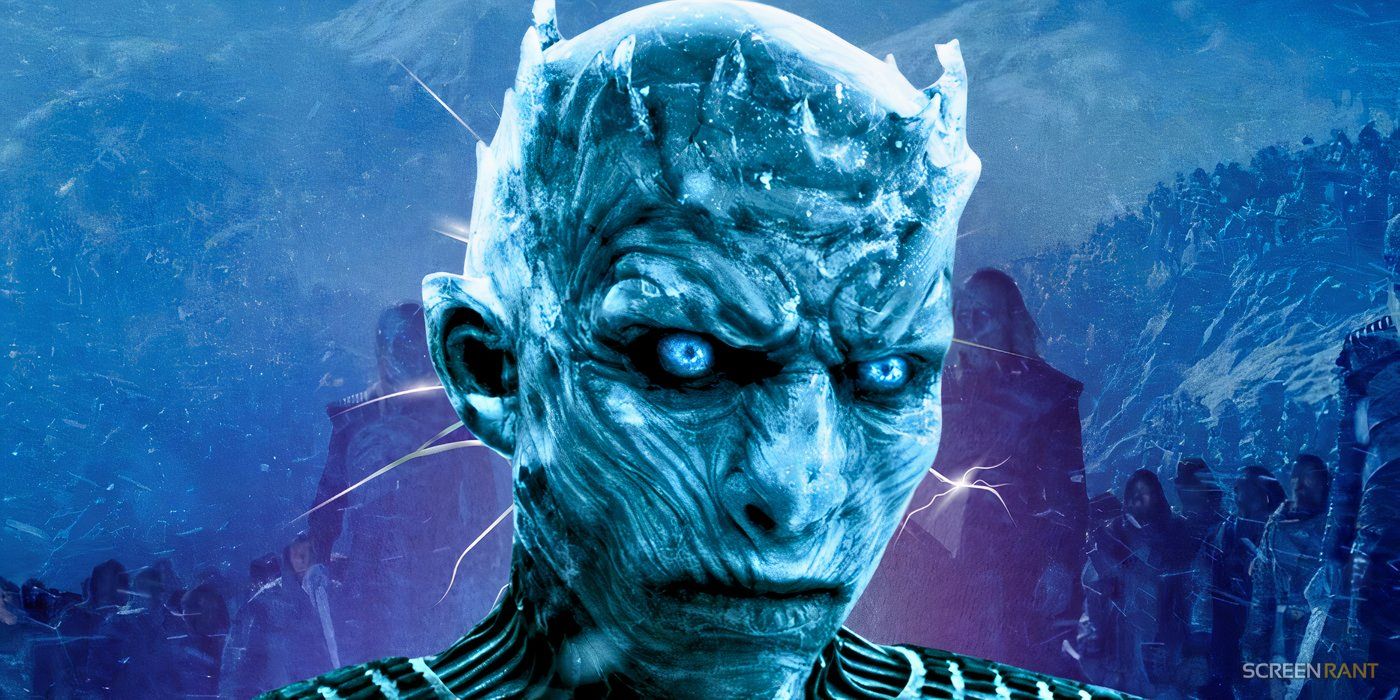
Game of Thrones, a series that captivated audiences worldwide, made significant alterations when it came to portraying the enigmatic Night King, a move that has sparked debate over whether it altered the narrative’s effectiveness. As the final season unfolded, many fans expressed dissatisfaction, noting that the formidable threat of the White Walkers was resolved in a mere three episodes—a stark contrast to the build-up since the series’ inception.
The pivotal moment came during the episode “The Long Night,” wherein Arya Stark dealt a decisive blow to the Night King, leading to the collapse of the White Walker army. This swift resolution left a myriad of unanswered questions and contributed to a growing sense of frustration among viewers. It’s worth contemplating whether the narrative could have achieved a more compelling arc without the Night King’s incorporation at all—a provocative thought given that this character is a departure from the source material, George R.R. Martin’s books.
In the original works, notably A Song of Ice and Fire, the Night King never materializes; instead, the White Walkers, referred to in the novels as “the Others,” operate without a discernible king or leader. This creative decision was introduced in the show during its fourth season, depicting the Night King in a haunting manner, yet it diverged from the more ethereal and complex representation found in Martin’s narrative.
The depiction of the Night King afforded the White Walkers a tangible antagonist, offering a face to frighten the masses. However, this shift came with its consequences. In the novels, the Others represent a natural force—akin to a supernatural embodiment of climate change—an existential threat that compels humanity to unite against it. Martin’s writings delve into the duality of human nature, exploring both its benevolent and malevolent aspects. With the introduction of the Night King, this dynamic subtly transformed, morphing the White Walkers into figures that embodied more human characteristics and motivations.
To understand the impact of the Night King’s existence on the narrative, one can reflect on his origin story, crafted by the Children of the Forest during a tumultuous war against the First Men. This background complicates the status of the Night King, suggesting he is not merely a force of nature but rather a character imbued with human-like traits and desires. The convoluted motivation behind his pursuit of Bran Stark left viewers wanting more clarity, posing the question: if he is to be a central figure, why is there so little context around him?
In retrospect, the Night King’s character brought forth some memorable scenes, such as the chilling act of transforming a baby into a White Walker and the haunting imagery at Hardhome, yet these moments appear few and far between against the backdrop of his critical role. The show’s attempt to humanize him ultimately resulted in a lack of sufficient characterization, leaving the fate of the White Walkers feeling unsatisfactorily resolved.
Looking ahead, one can speculate about how Martin might choose to portray the Others in the eventual completion of A Song of Ice and Fire. The absence of a character like the Night King may afford the narrative more fluidity, focusing on their nature as an unstoppable phenomenon rather than as a mere villain. This absence could lead to a richer exploration of the Long Night, potentially spanning multiple points of view and locations, contrasting sharply with the series’ more condensed interpretation.
As fans continue to analyze the stark differences between the books and the show, it is evident that the portrayal of the White Walkers—and particularly the Night King—has led to considerable discussion around the complexities of adaptation. In the end, while the character of the Night King sought to provide clarity to a nebulous threat, it may have instead muddled the story, inviting an ongoing debate over what could have been.





